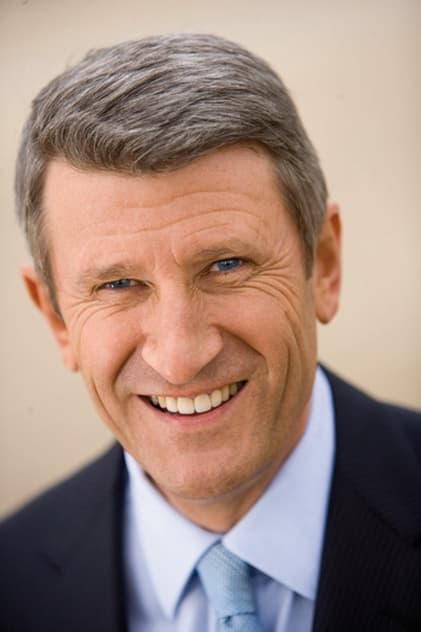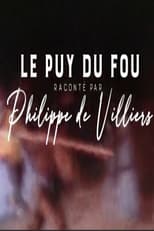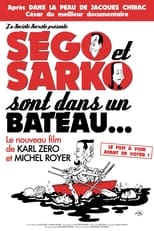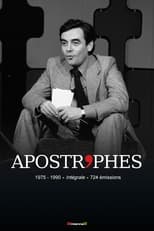

Philippe de Villiers
Born: March 25, 1949
in Boulogne, Vendée, France
in Boulogne, Vendée, France
Philippe Marie Jean Joseph Le Jolis de Villiers de Saintignon, known as Philippe de Villiers (born 25 March 1949), is a French entrepreneur, politician and novelist. He is the founder of the Puy du Fou theme park in Vendée, which is centred around the history of France. Appointed Secretary of State for Culture in 1986 by President François Mitterrand, de Villiers entered the National Assembly the following year and the European Parliament in 1994.
After leaving the Republican Party (PR) to found the Movement for France (MPF), he was its nominee in the 1995 and 2007 presidential elections. He received 4.74% of the vote the first time, placing seventh; he won 2.23% of the vote twelve years later, putting him in sixth place. De Villiers has been internationally notable for his criticism of mass immigration and Islam in France, as well as his ardent support of the French way of life. His brother, General Pierre de Villiers, served as Chief of the Defence Staff from 2014 to 2017.
De Villiers was born in Boulogne in the department of Vendée, Western France, the second of five children and eldest son of Jacques Le Jolis de Villiers de Saintignon (born in Nancy, 14 November 1913) and his wife Edwige d'Arexy (born in Nantes, 1 July 1925). His paternal grandfather, Louis Le Jolis de Villiers, born at Brucheville on 17 October 1874, was killed in action in World War I at Saint-Paul-en-Forêt on 10 September 1914. On 24 October 1904, he had married Jeanne de Saintignon (27 July 1880 – 25 August 1959), by whom he had five children, the youngest of whom was Philippe's father, Jacques.
De Villiers received a master's degree in Law in 1971, graduated from the Paris Institute of Political Studies in 1973 and from the École nationale d'administration in 1978. After his studies, De Villiers became a successful entrepreneur. He created the Puy du Fou, one of the most visited theme parks in France, as a living showcase for its history. The theme park includes a replica medieval city with the 'Gallo-Roman Stadium', a colosseum designed by De Villiers to stoke patriotic feeling by recreating Gallic rebellions against Imperial Rome. The Puy du Fou park received awards from the Themed Entertainment Association in 2012, 2016, 2017 and 2019.
He is a French aristocrat and a descendant of diplomat and historian Louis Philippe, comte de Ségur and Minister and Regent Philippe II, Duke of Orléans. As of 2007 he is a Member of the European Parliament (Independence/Democracy Group). He is 1.85 meters tall.
He is married to Dominique du Buor de Villeneuve, born in Valenciennes on 4 October 1950 and has seven children: Caroline (born in Montaigu, 12 August 1976), Guillaume (born in La Roche-sur-Yon, 14 December 1977), Nicolas (born in La Roche-sur-Yon, 10 September 1979), Marie (born in Nantes, 5 October 1981), Laurent (born in La Roche-sur-Yon, 8 April 1984), Bérengère (born in La Roche-sur-Yon, 1 October 1988) and Blanche (born in Cholet, 21 June 1993). ...
Source: Article "Philippe de Villiers" from Wikipedia in English, licensed under CC-BY-SA 3.0.
After leaving the Republican Party (PR) to found the Movement for France (MPF), he was its nominee in the 1995 and 2007 presidential elections. He received 4.74% of the vote the first time, placing seventh; he won 2.23% of the vote twelve years later, putting him in sixth place. De Villiers has been internationally notable for his criticism of mass immigration and Islam in France, as well as his ardent support of the French way of life. His brother, General Pierre de Villiers, served as Chief of the Defence Staff from 2014 to 2017.
De Villiers was born in Boulogne in the department of Vendée, Western France, the second of five children and eldest son of Jacques Le Jolis de Villiers de Saintignon (born in Nancy, 14 November 1913) and his wife Edwige d'Arexy (born in Nantes, 1 July 1925). His paternal grandfather, Louis Le Jolis de Villiers, born at Brucheville on 17 October 1874, was killed in action in World War I at Saint-Paul-en-Forêt on 10 September 1914. On 24 October 1904, he had married Jeanne de Saintignon (27 July 1880 – 25 August 1959), by whom he had five children, the youngest of whom was Philippe's father, Jacques.
De Villiers received a master's degree in Law in 1971, graduated from the Paris Institute of Political Studies in 1973 and from the École nationale d'administration in 1978. After his studies, De Villiers became a successful entrepreneur. He created the Puy du Fou, one of the most visited theme parks in France, as a living showcase for its history. The theme park includes a replica medieval city with the 'Gallo-Roman Stadium', a colosseum designed by De Villiers to stoke patriotic feeling by recreating Gallic rebellions against Imperial Rome. The Puy du Fou park received awards from the Themed Entertainment Association in 2012, 2016, 2017 and 2019.
He is a French aristocrat and a descendant of diplomat and historian Louis Philippe, comte de Ségur and Minister and Regent Philippe II, Duke of Orléans. As of 2007 he is a Member of the European Parliament (Independence/Democracy Group). He is 1.85 meters tall.
He is married to Dominique du Buor de Villeneuve, born in Valenciennes on 4 October 1950 and has seven children: Caroline (born in Montaigu, 12 August 1976), Guillaume (born in La Roche-sur-Yon, 14 December 1977), Nicolas (born in La Roche-sur-Yon, 10 September 1979), Marie (born in Nantes, 5 October 1981), Laurent (born in La Roche-sur-Yon, 8 April 1984), Bérengère (born in La Roche-sur-Yon, 1 October 1988) and Blanche (born in Cholet, 21 June 1993). ...
Source: Article "Philippe de Villiers" from Wikipedia in English, licensed under CC-BY-SA 3.0.
Movies for Philippe de Villiers...

Title: Le Puy du Fou raconté par Philippe de Villiers
Character: Self
Released: November 12, 2022
Type: Movie


Title: Ségo et Sarko sont dans un bateau...
Character: Self (archive footage)
Released: April 4, 2007
Type: Movie


Title: Apostrophes
Character: Self
Released: January 10, 1975
Type: TV
Apostrophes was a live, weekly, literary, prime-time, talk show on French television created and hosted by Bernard Pivot. It ran for fifteen years (724 episodes) from January 10, 1975, to June 22, 1990, and was one of the most watched shows on French television (around 6 million regular viewers). It was broadcast on Friday nights on the channel France 2 (which was called "Antenne 2" from 1975 to 1992). The hourlong show was devoted to books, authors and literature. The format varied between one-on-one interviews with a single author and open discussions between four or five authors.
